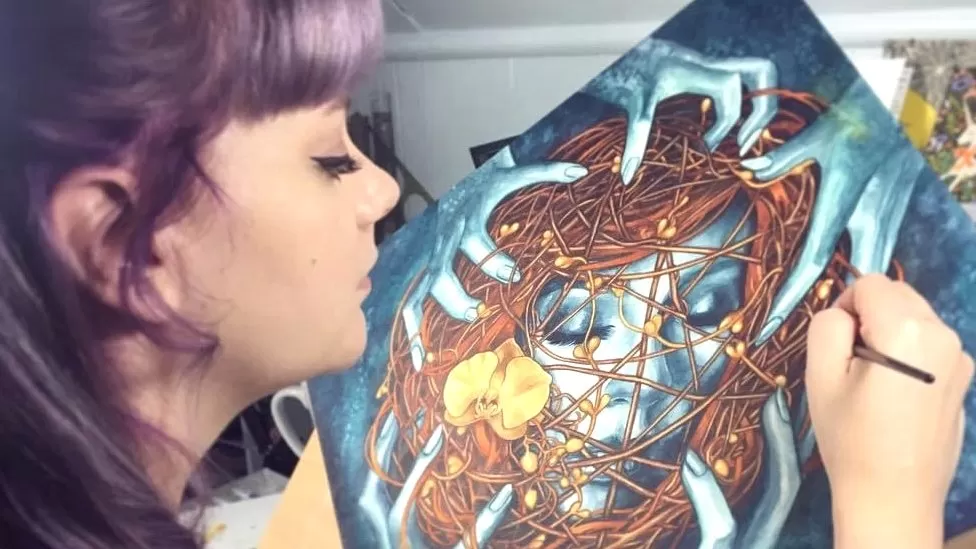New AI systems collide with copyright law

Her curiosity led her to type her name into Have I Been Trained, which searches LAION, a data set that feeds artificial intelligence (AI) image generators, including Stable Diffusion.
Over 50 pieces of artwork had been uploaded to LAION.
“Suddenly, these paintings with which I had a personal relationship and journey took on a new significance, changing the relationship between me and them,” says the Tennessee watercolour and acrylic illustrator.
If someone can type my name into an AI tool and not hire me, that affects my career and so many others.
Generative AI is learning from vast amounts of data – text, images, video, and audio files scraped from the internet. A simple text prompt can create content within seconds. Ms McKernan, however, is fighting back.
Ms McKernan, along with cartoonist Sarah Anderson and illustrator Karla Ortiz, is suing Stability AI, the company behind Stable Diffusion, Midjourney, and DeviantArt.
A growing number of lawsuits are being filed against AI firms, which are testing copyright issues.
Getty Images filed a lawsuit against Stability AI earlier this year, alleging that the company unlawfully copied and processed 12 million of its images.
As an artist, Eva Toorenent designs mostly creatures, monsters, and fantasy illustrations. She became concerned about AI after visiting a gallery and seeing a piece that resembled hers – which she describes as “corrupted.”
‘If this can happen on a small scale, it can happen on a giant scale,’ says the artist from Zandvoort, the Netherlands. In response to the lack of protection for artists, she founded the European Guild of Artificial Intelligence Regulation with five other artists.
According to her, legislation and regulations are needed to protect copyright holders and artists from predatory AI companies.
